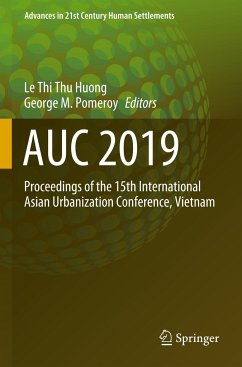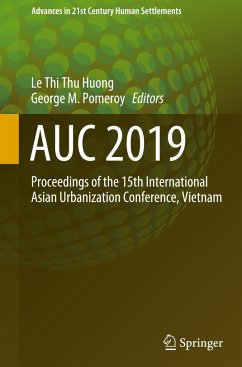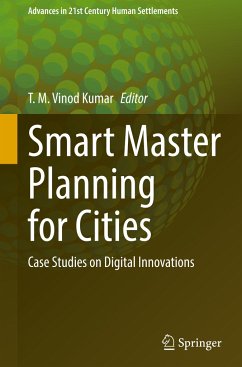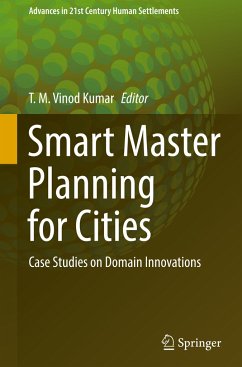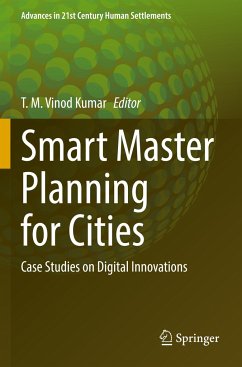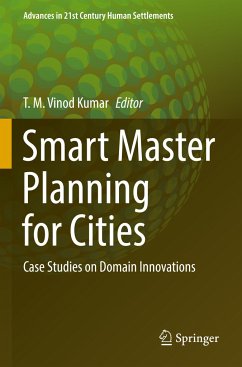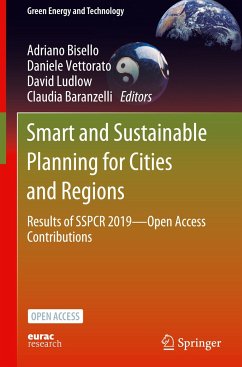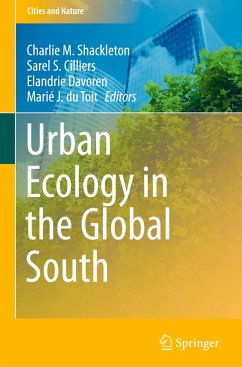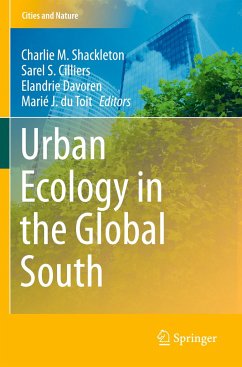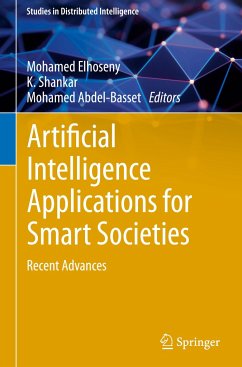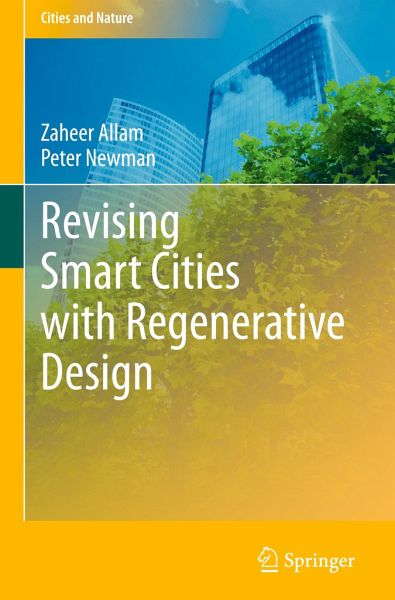
Revising Smart Cities with Regenerative Design
Versandkostenfrei!
Versandfertig in 6-10 Tagen
106,99 €
inkl. MwSt.
Weitere Ausgaben:

PAYBACK Punkte
53 °P sammeln!
This book presents a road map to urban regeneration through the contemporary concept of smart cities. It investigates why the concept has gained adoption as it has but until now it has been geared towards a profit-making venture by large corporations and ignoring the economic aspirations of smaller companies and city councils. The technologies can provide enhanced liveability levels if the concept is redefined.This work will be of interest to academics and policy makers looking at exploring how to drive urban regeneration in a sustainable and inclusive fashion while supporting local economies....
This book presents a road map to urban regeneration through the contemporary concept of smart cities. It investigates why the concept has gained adoption as it has but until now it has been geared towards a profit-making venture by large corporations and ignoring the economic aspirations of smaller companies and city councils. The technologies can provide enhanced liveability levels if the concept is redefined.
This work will be of interest to academics and policy makers looking at exploring how to drive urban regeneration in a sustainable and inclusive fashion while supporting local economies. It presents a case study of Port Louis, Mauritius, with unique insights and data. Academics, policy makers and urban developers could potentially adopt the model and calibrate it to various cities and quantify the economic and social benefits.
This work will be of interest to academics and policy makers looking at exploring how to drive urban regeneration in a sustainable and inclusive fashion while supporting local economies. It presents a case study of Port Louis, Mauritius, with unique insights and data. Academics, policy makers and urban developers could potentially adopt the model and calibrate it to various cities and quantify the economic and social benefits.



